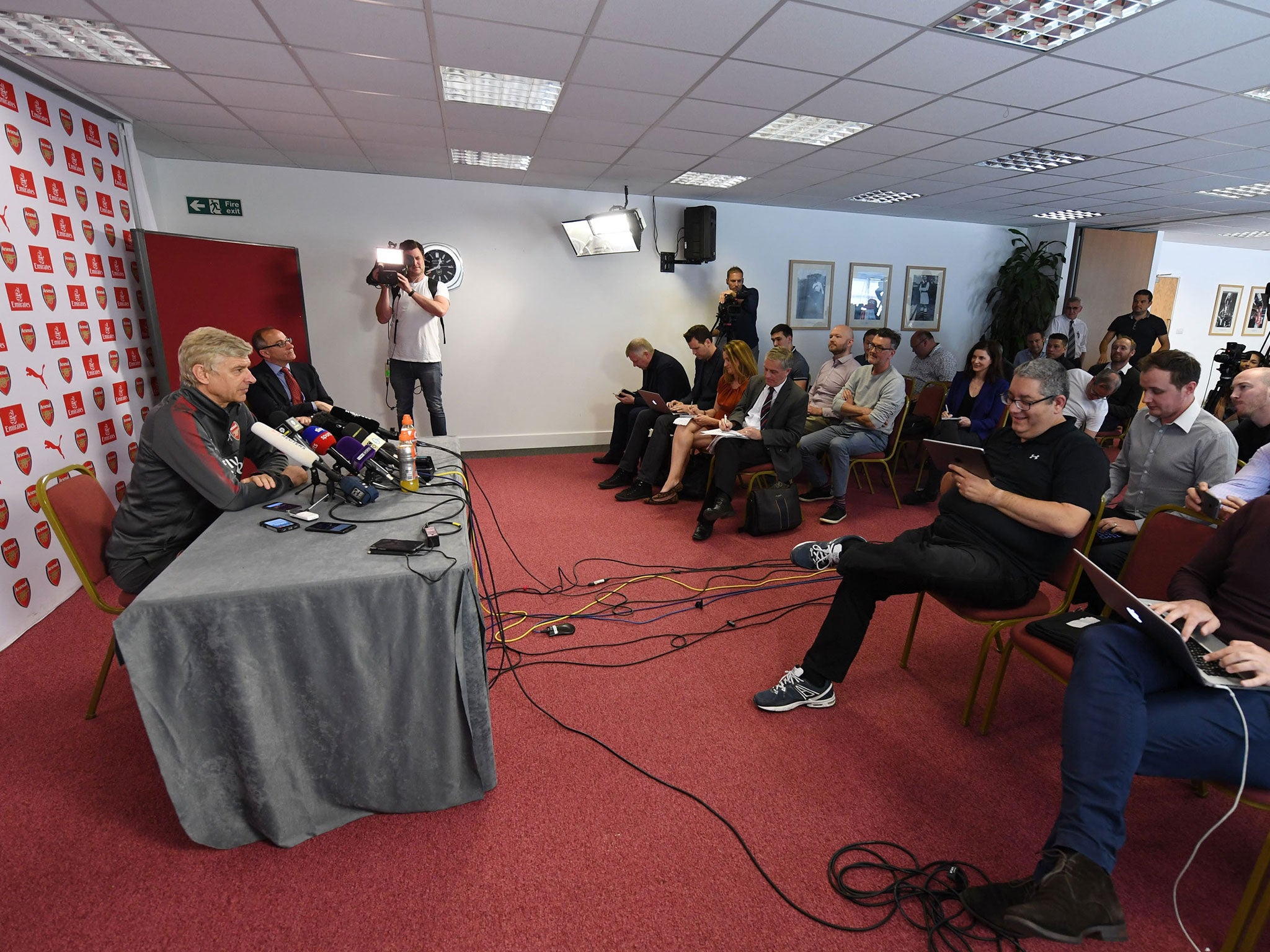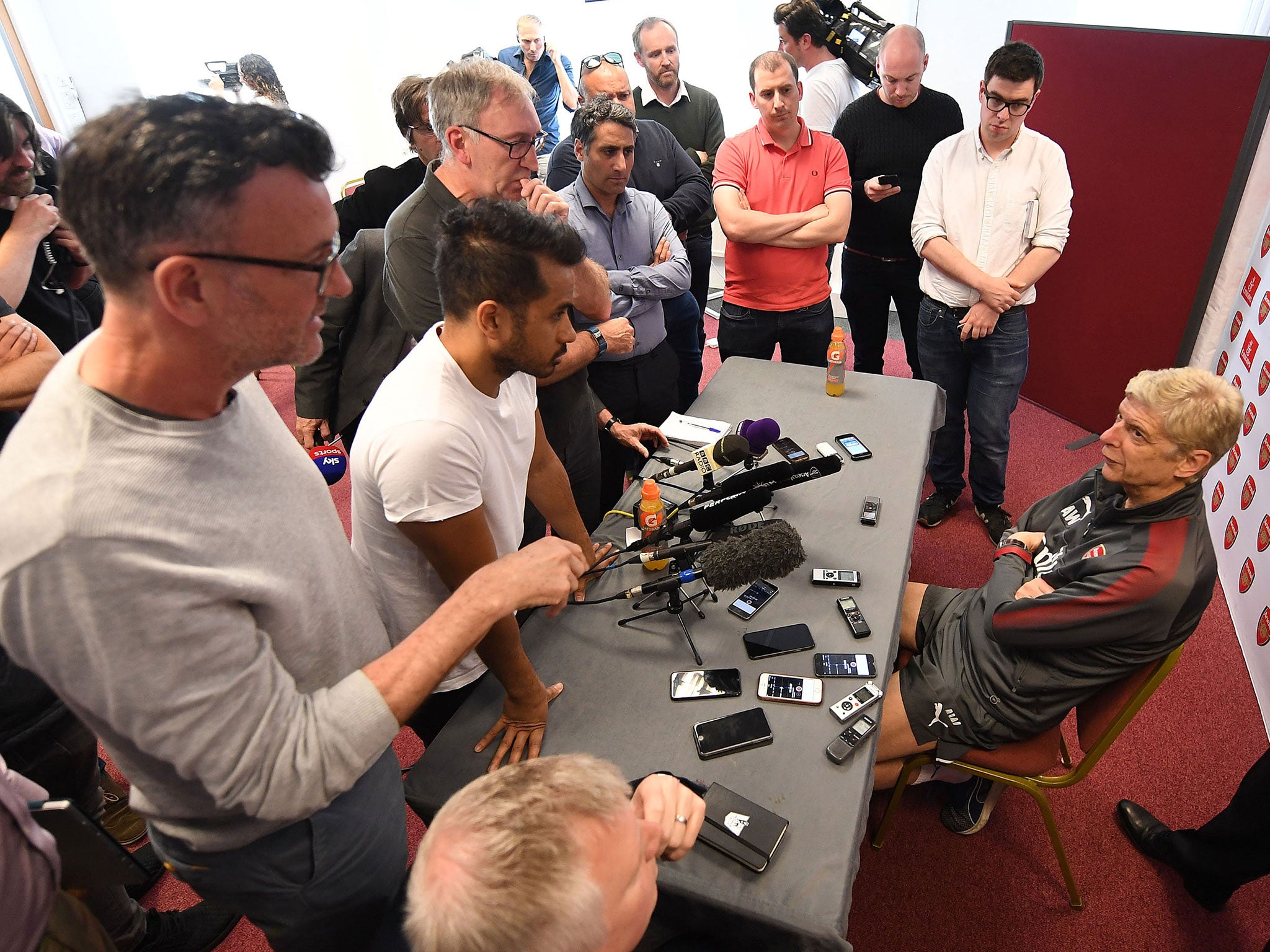Arsene Wenger explains why his three Premier League titles aren't his best work at Arsenal
The Frenchman gave his last ever London Colney press conference on Thursday afternoon
Arsene Wenger is preparing his last ever Arsenal game, but when asked to look back at his 22-year-tenure and choose his best work in charge, he did not choose any of his three Premier League titles.
Wenger, speaking at his last ever London Colney press conference this afternoon, said that the first nine years at the Emirates, from 2006 to 2015, represented his “best work”.
In that time Arsenal went through a nine-year trophy drought, from the 2005 FA Cup final win, to winning the same trophy back in 2014 and 2015.
But while that time was unsuccessful on the pitch, it was when Wenger guided Arsenal into the new stadium, operated within financial restrictions and kept the club in the Champions League. That hard thankless task is why he sees it as his best work.
“I would say personally from 2006 to 2015 it was certainly the period where I needed to be the strongest and did the best job,” Wenger said. “Because to accept to commit [to Arsenal] for five years when you build the stadium, to work with restricted resources, and to keep the club in a position where we can pay our debts back, I personally feel I did my best job in that period. Not the most glamorous maybe, but the most difficult.”
When asked to choose between his three titles, Wenger said that the 2003-04 Invincibles were even better than the 1997-98 double-winning team. “2003-04,” Wenger said. “Their achievement, nobody has done it since in the Premier League. I loved the team in 1998 because I found some players had quality much better than I thought they were when I arrived here. They were very intelligent as well. And they were an experienced team. After, we added a bit more exceptional quality in 2002 and 2004. Overall, the Invincibles.”
While the stadium move and the trophies are part of Wenger’s legacy, he also pointed to the values he has instilled at the club, values he wants the new manager to adhere to as well.

“Legacy is what you think is important in the way you behave with your players,” Wenger said. “I get many messages from players and it was not always [about] the trophies we won together, it is more the human aspect that the players keep and the values of the club that they keep when they go somewhere else. That is what you want.”
Looking at what has changed in English football over his 22-year spell here, Wenger said that clubs are far bigger employers than they ever used to be, and that this affected the global outlook of the Premier League.

“The Premier League has created many jobs, when I arrived we were 80 at Arsenal, we are today 700,” Wenger said. “From a private little company where you know everybody, we have gone to a normal company with an HR department, where everything has to be processed and regulated. That's not down anymore to your initiative, but every single decision has to go through a process in an over-regulated society. It's sometimes discouraging, so the human aspect has dropped a little bit.”
Ultimately Wenger thinks the rise of the super-rich super-clubs will affect the structure of English football and will lead to a European Super League.
“The financial power of the clubs has become huge,” Wenger said. “In 20 years the ownership has changed completely. If you look at the ownership when I was arrived and what it is today, it has become completely world-wide. England does not own the clubs any more, it's much more international. The world has become globalised and open, so the competition is worldwide with the players as well.
"The Premier League has become a world-wide championship. The next evolution? Maybe I will see you in a few years and you will certainly have a European league over the weekends."
Join our commenting forum
Join thought-provoking conversations, follow other Independent readers and see their replies
Comments
Bookmark popover
Removed from bookmarks